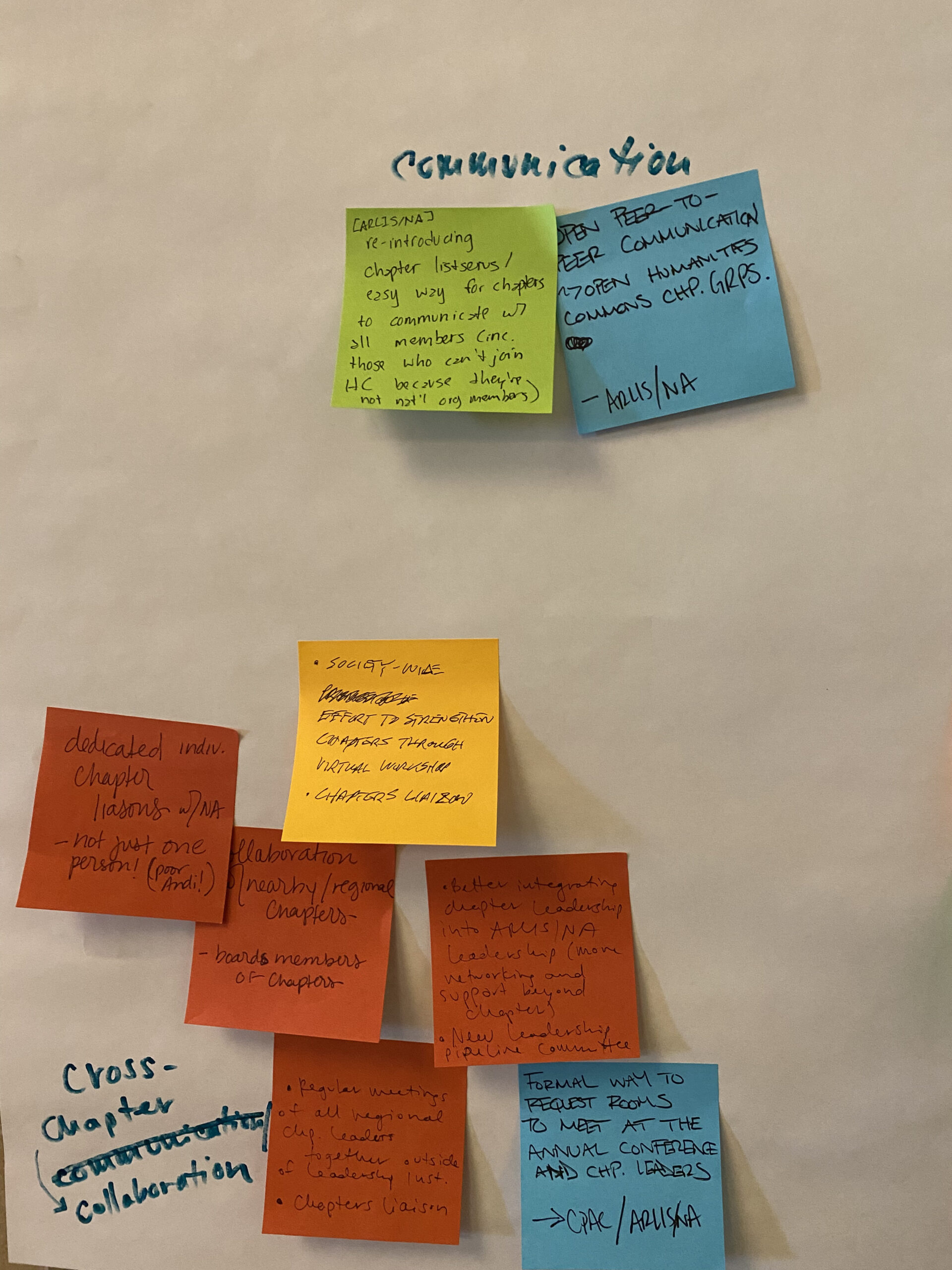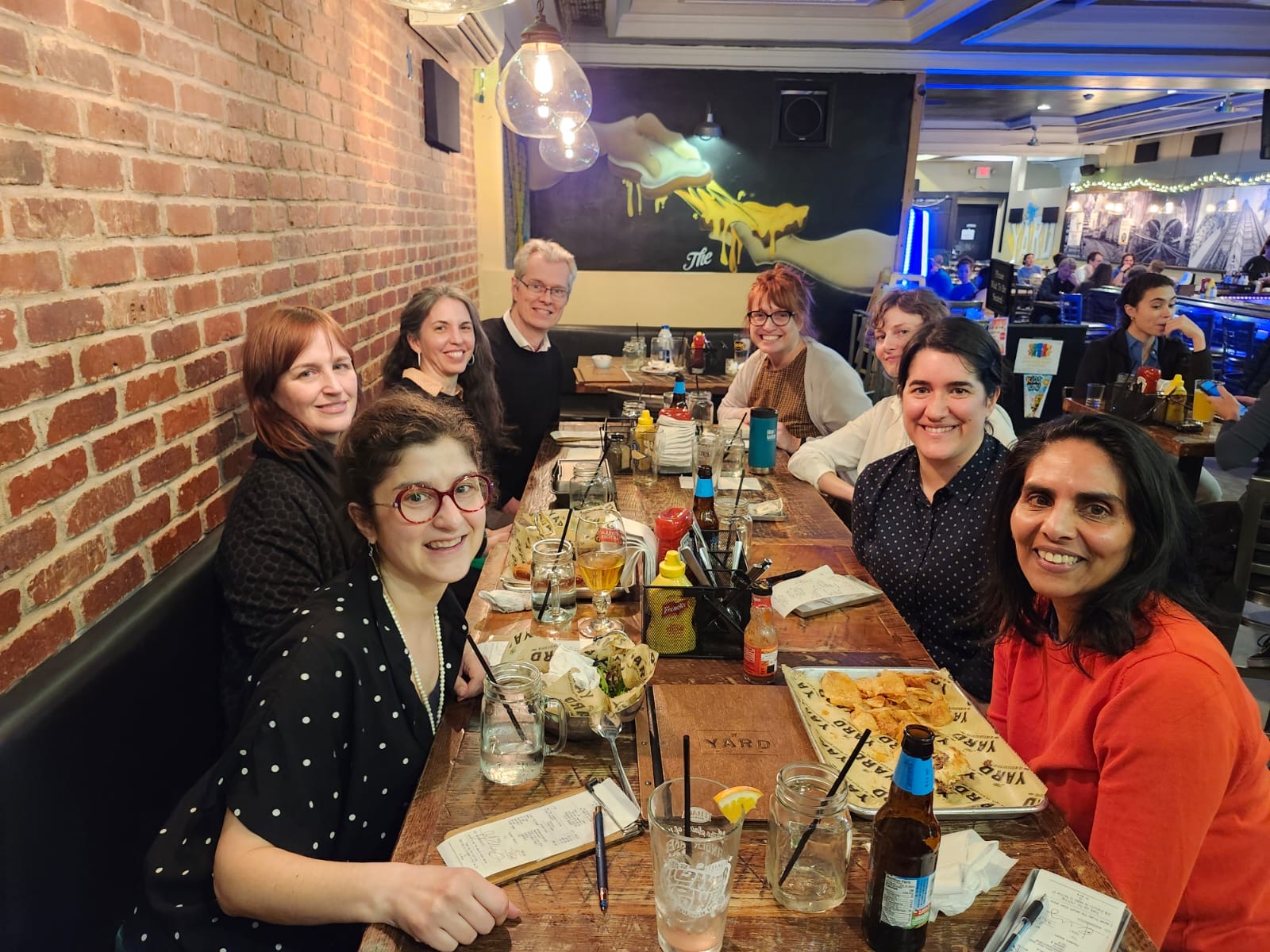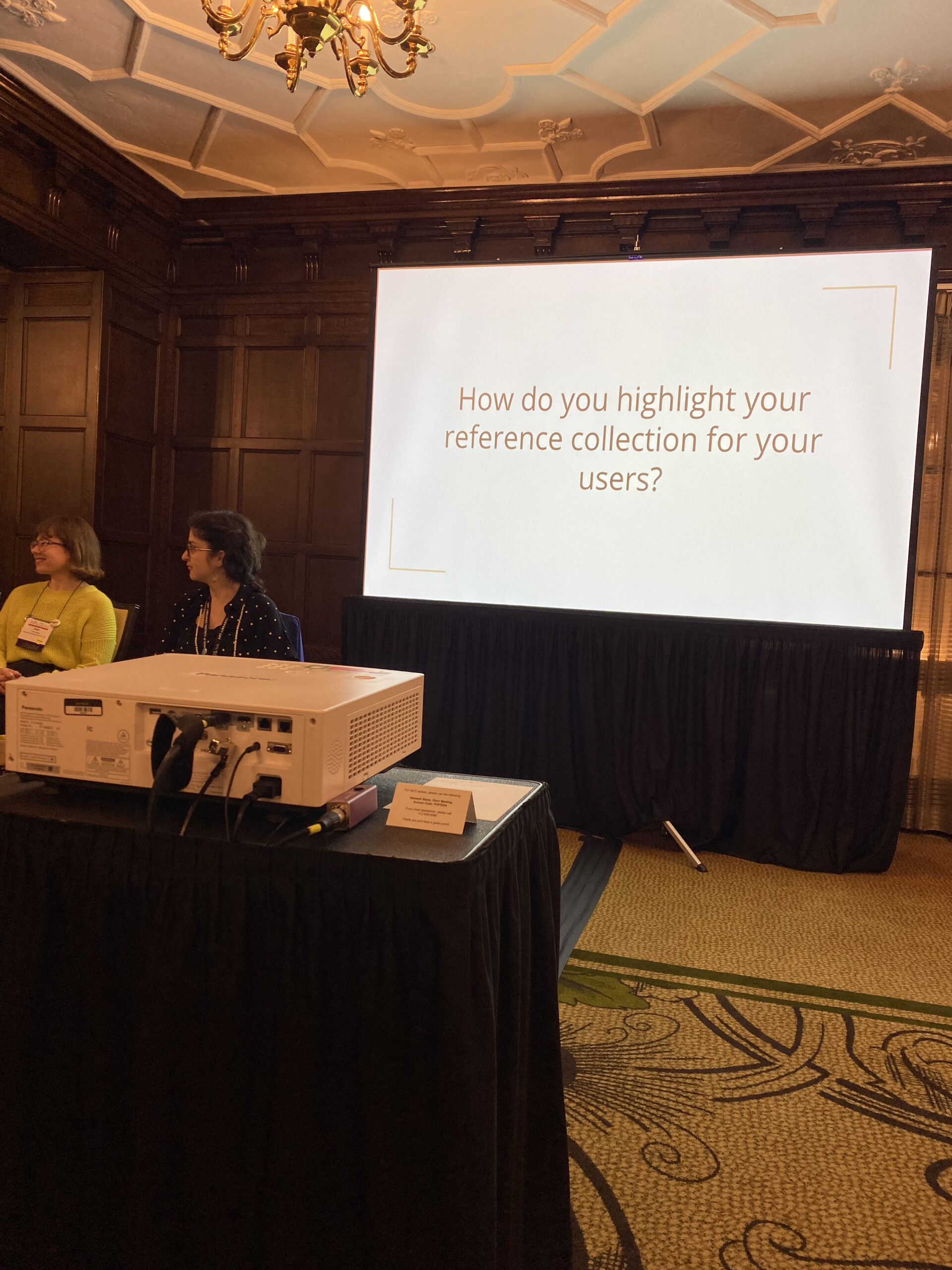Report
think of popping open a bottle of champagne
From April 2 – 5, 2024, librarians and archivists from all over North America gathered for the annual ARLIS/NA conference at the Omni William Penn Hotel in Pittsburgh, Pennsylvania. The theme of the 2024 conference was POP!: open-ended, with a wink to the city’s affiliation to the Pop Art movement (birthplace of prince of Pop Art, Andy Warhol), and intended to be interpreted variously as playful – think of popping open a bottle of champagne or popping preconceived notions (Resnik, 2024).
The conference
The event was an impressive display of professionals and dedicated volunteers coming together to bolster community and exchange information on myriad topics. Across an array of panels and talks, information professionals discussed reference models, cataloguing practices, collecting strategies, and new technologies. Every presentation given was an exercise in resistance to entropy, while concurrently, the week of the conference, the hotel was the target of a cyberattack (Zorz, 2024) and the city experienced its biggest flood in twenty years (Bartos, 2024). As I write this, DEI (diversity, equity, inclusion) initiatives in the United States are being rolled back (Partridge, 2025), the IMLS (Institute of Museum and Library Services) is being dismantled (American Library Association, 2025) and ongoing budget cuts in Canada (Chawla, 2024; Department of Canadian Heritage, 2025) will certainly be felt in the arts, culture and heritage sector.
Resilience was a through line at the 52nd ARLIS/NA conference. During the Leadership Institute, members congregated to brainstorm ideas to improve functioning in the organisation. Art historian, curator, and closing keynote speaker, Kilolo Luckett, gave a galvanizing speech about the advocacy work she’s done for black curators and artists in Pittsburgh in her talk Storytelling Centering the Margins. It was difficult to choose which sessions to attend among the vibrant simultaneous offerings that approached topics in art librarianship with a view to the future, pushing back against outdated ways of doing things and approaching practice with a problem-solving mindset.
a view to the future
It was difficult to choose which sessions to attend among the vibrant simultaneous offerings
DEI topics were highly present in the conference’s programming. Panels exploring queer and neurodivergent identities in librarianship, inclusive collection development, access, and instruction, balancing the demands of parenting or pursuing higher education with work, and making space for new voices in the profession were some of the sessions offered. These approaches advocated for implementing systems to resist homogeneity and bias that individual practitioners are prone to on their own. I attended several panels that considered strategies to make collections and access more inclusive. Technically Speaking: Projects and Initiatives in Cataloguing and Technical Services Departments featured a presentation on when and how to employ “diversity tags” and another that discussed a system to analyse acquisitions and assess collection priorities. Collecting for the Future: Strategies for Inclusive Collection Development and Representation included discussion of an assessment and cataloguing project to increase the discoverability of BIPOC (Black, Indigenous, People of Colour) artists, a presentation of data about academic libraries acquisition budgets to illustrate a “monograph funding crisis”, and a study on the relationship between media coverage and gallery representation. The recently published ARLIS/NA report State of Art Museum Libraries, 2024 (Gottlieb-Miller et al, 2025) confirms that DEI initiatives are alive and well in the field and a majority (72%) of respondents to the survey reported implementing them in their institutions.
trends
Another trend in conference programming was forward thinking approaches and examples of innovation in practice. These sessions considered how to resist stagnation by re-imagining the conventions and systems information professionals are working within, and how to best incorporate emerging technologies like AI (Artificial Intelligence) and VR (Virtual Reality) into library instruction. In a survey of the current state of reference books in different types of art libraries, Reference in Art Libraries: A Roundtable Discussion asked pertinent questions such as how libraries can adapt to the increasing demand for digital above physical reference materials and whether to rethink current models of restricted circulation to broaden access. Oh, Artists’ Books…I Love You, Too..But…: Considerations for Outreach, Storage, and Access similarly considered new models for circulation to increase access to artists’ books as well as methods for incorporating artists’ books into humanities instruction. These perspectives are vital to keeping the profession relevant in today’s fast-paced march of technological change.

Resisting the impacts of austerity
The 2024 conference attests to art librarians’ ongoing engagement with various challenges in the profession. However, it is increasingly necessary to advocate for library services to resist the impacts of austerity and disruption. The State of Art Museum Libraries, 2024 conveys some worrying trends about the health of the field. Relative to 2016, participating institutions (44%) reported a significant decrease in full-time staff, with a loss of between 1-4 full-time positions and an increasing overall reliance (75%) on volunteers, interns and part-time or grant funded positions. In the same period 61 percent of institutions reported at least one staff retirement. There is also a noted decline in maintaining public hours for collection access, while only 12 percent of participants reported adopting virtual tools for reference. A quarter of respondents reported cuts in budgets, notably staff budgets. And, according to the survey, art library workers in the field are overwhelmingly not protected by labour unions (78%) (Gottlieb-Miller et al, 2025). Clearly information professionals in the field face obstacles on the horizon. In research and in practice, looking forward to future ARLIS/NA conferences, it remains important to embrace resistance.
Special thanks to the ARLIS/MOQ Professional Development Committee and Michelle Gauthier Travel Award for supporting my attendance at the conference.
References
American Library Association. (2025). FAQ: Executive order targeting IMLS. Retrieved April 19, 2025 from https://www.ala.org/faq-executive-order-targeting-imls
Bartos, M. (2024, April 19). Pittsburgh’s Point State Park reopens after “unprecedented” flooding cleanup. CBS Pittsburgh KDKA News. https://www.cbsnews.com/pittsburgh/news/point-state-park-reopens-flooding-cleanup/#:~:text=Pittsburgh’s%20three%20rivers%20reached%20flood,crept%20up%20onto%20the%20lawn
Chawla, M. (2024, February 29). Supporting the art community: CEO letter to the community. Canada Council for the Arts. https://canadacouncil.ca/spotlight/2024/02/supporting-the-arts-community#:~:text=As%20part%20of%20this%20government,2026%E2%80%9327%20and%20going%20forward
Department of Canadian Heritage. (2025). Departmental Plan 2024-25 — Canadian Heritage. Retrieved April 19, 2025 from https://www.canada.ca/en/canadian-heritage/corporate/publications/plans-reports/departmental-plan-2024-2025.html
Gottlieb-Miller, L., Clavell, C., Alleman, K., Furness, A., Bender, S. O., & Riestenberg Pepin, J. (2025). State of Art Museum Libraries, 2024. Art Libraries Society of North America. https://doi.org/10.17613/e68z0-epj66
Partridge, J. (2025, February 14). What is the DEI rollback and where will it spread next? The Guardian. https://www.theguardian.com/us-news/2025/feb/14/diversity-equity-inclusion-dei-us-trump-google-amazon-walmart
Resnik, R. (2024). 2024: 52nd Annual Conference: Welcome from the president of ARLIS/NA. Art Libraries Society of North America. https://www.arlisna.org/events/2024-52nd-annual-conference#program
Zorz, Z. (2024, April 4). Omni Hotels suffer prolonged IT outage due to cyberattack. Help Net Security. https://www.helpnetsecurity.com/2024/04/04/omni-hotels-suffer-prolonged-it-outage-due-to-cyberattack/





